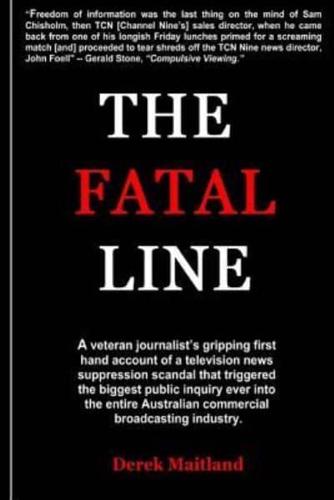Publisher's Synopsis
The Fatal Line is Derek Maitland's gripping expose of collusion, corruption, perjury and betrayal that triggered the biggest, most wide-ranging public inquiry ever held into the commercial television and radio industry of Australia -- and why virtually no Australian, nor anyone else, has ever read or heard of it. The drama began with a defiant stand by TV reporter Maitland and assistant news editor John Pemberton at Sydney's TCN Channel Nine against a belligerent, unethical and previously unheard-of act of news suppression - and attack on the strict independence of the station's news service -- forced by the advertising sales manager . But the impact of the two-man revolt went far beyond Channel Nine itself, leading to an exhaustive six-month public inquiry by the federal Broadcasting Control Board into why, not just Channel Nine, but the entire Australian commercial broadcasting industry, blacklisted a vital parliamentary report that directly touched the lives of millions of Australian consumers. The report dealt with the findings of a joint federal parliamentary investigation into the highly questionable advertising and marketing practices, and product pricing, of the two monoliths of the detergent and soap industry, Unilever and Colgate-Palmolive, and was highly critical of both corporations, charging them with promoting misleading "lemon fresh" and "whiter than white" advertising claims and over-pricing the products they were marketing into virtually every single household in Australia. Derek Maitland uses a skilfull orchestration of narration, analysis and cross-examination from the inquiry's official transcript to smoothly draw the reader step-by-step along The Fatal Line, underscoring the ruthless, retributive power of the industry forces arrayed against them - with no less than 11 QCs (Queen's Counsel) representing the stations and the two soap giants.. The two journalists effectively became not simply prime witnesses but the accused -- defendents in the dock -- pitted against a combined industry campaign, a legal juggernaut, bent on destroying their credibility and their careers throughout the inquiry. Maitland himself had already been sacked from Channel Nine and was blacklisted and unable to work throughout the Australian media. At the point where they were facing professional ruin however, the evidence suddenly began turning in their favour, and in the most astonishing way, as witness after witness for the broadcast managements, including Channel Nine's reigning czar, Kerry Packer, were forced to reveal the real truth behind the reasons for blacklisting of the soap report -- negotiations with Unilever and Colgate-Palmolive for $1-million advertising contracts, with the three competing Sydney stations bidding with identical rate cards, and collusion between Channels Nine and Ten in phone calls between their sales managers discussing the report the very evening that Nine pulled the soap story from its main news bulletin. As the evidence clearly indicated, it was indeed a national TV conspiracy, and a national media disgrace. These disclosures undermined the powerful management case against Maitland and Pemberton and totally vindicated them, in fact, on the rebellion they had launched on the night of the fatal line. But The Fatal Line isn't just about whistleblowers winning their case against unscrupulous and ruthless odds. It's also about what happens to whistleblowers who win - how they get destroyed anyway. In Derek Maitland's case, the fatal line led to a shocking personal tragedy in the wake of the inquiry that drove him out of Australia for the second time in his life. He stayed away, travelling and working in SE Asia, China, Canada and Europe, until 2001 when he returned to Sydney determined, as he writes, to "set a little-known but damaging and painful record straight."




